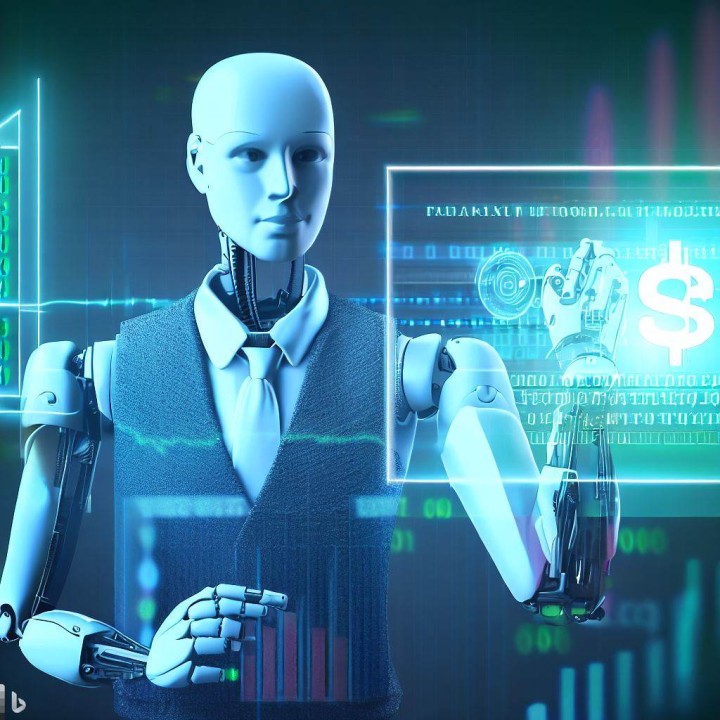The Inspiring Journey of Alec, a Young Entrepreneur
In a remarkable AI success story, Alec, a 22-year-old immigrant, launched his first online business that generated an astonishing $700,000 in just three months. What makes this achievement even more impressive is that Alec and his co-founder started the company while still in college, with zero money to their name.
Launched in March, their product quickly gained traction, with nearly half of their school signing up to use it by the end of the month. This incredible response was a defining moment for Alec and his co-founder, as they realized the immense potential of their venture.
We strongly recommend that you check out our guide on how to take advantage of AI in today’s passive income economy.
Table of Contents
Overcoming Challenges and Embracing Entrepreneurship
Alec’s journey to entrepreneurial success was not without its challenges. As an international student, he faced numerous obstacles, including immigration visas and legal issues. Despite applying to over 500 companies, Alec struggled to land a job, making it difficult for him to remain in the United States.
Determined to stay in the country and avoid deportation, Alec decided to start his own business with a college friend. Together, they identified a gap in the market and developed a quick solution that would later become a top-four product on Product Hunt and attract the attention of a venture capital firm.
From Student Project to Thriving AI Startup
Alec’s AI success story began as a student project for a pitch competition, with the grand prize of $10,000. Over the course of four months, Alec and his co-founder dedicated themselves to learning AI technology, specifically OpenAI’s GPT-3, and creating various product iterations.
Their initial product, Code Assist AI, aimed to help students write code more easily for their economics and data science projects. However, they soon expanded their focus to address a broader issue: the time-consuming process of conducting literature reviews for students and researchers.
By the end of February, they had developed a minimum viable product (MVP) and, within a month, had nearly half of their school signed up to use it. This unexpected success served as a turning point, motivating Alec and his co-founder to continue refining and growing their AI success story.
Overcoming Setbacks and Embracing Opportunities
Despite the early traction, Alec faced several setbacks along the way. He and his co-founder entered two startup ideas into their university’s pitch competition but ultimately lost both, leaving them devastated after months of hard work.
Faced with the decision to either return to Vietnam or incorporate their current product into a company, Alec and his co-founder chose the latter. With less than $10,000 to sustain themselves and finance the company, they poured their energy into launching on Product Hunt, a popular platform for validating products and gaining immediate traction.
Their hard work paid off when they ranked as the fourth product of the day on Product Hunt, attracting the attention of a venture capital firm, SPATX. This connection led to an invitation to join SPATX’s accelerator program and a $100,000 investment, marking a significant milestone in their AI success story.
Leveraging Partnerships and Customer Feedback for Growth
As Alec and his co-founder continued to grow their company, they encountered a plateau in finding new leads and potential customers. However, a timely partnership with AppSumo, a platform known for its highly engaged user base, provided them with a valuable opportunity to expand their reach and gather crucial feedback.
By implementing mechanisms to collect user feedback at various stages after a product purchase, Alec and his team were able to continuously iterate and improve their offering. This focus on building the best product and prioritizing customer needs ultimately led to their remarkable AI success story, generating $700,000 in revenue as one of the top 10 hottest-selling products on AppSumo.
Key Lessons from Alec’s AI Success Story
Throughout his entrepreneurial journey, Alec learned several valuable lessons that contributed to his AI success story:
- Persistence and adaptability in the face of challenges and setbacks
- The importance of identifying market gaps and developing quick, iterative solutions
- Leveraging partnerships and platforms to expand reach and gather customer feedback
- Prioritizing product quality and customer needs over short-term revenue goals
- The power of hard work, dedication, and a strong co-founder relationship
Conclusion
Alec’s remarkable AI success story serves as an inspiration to aspiring entrepreneurs, highlighting the potential for young, ambitious individuals to create thriving businesses in the face of adversity. By embracing AI technology, identifying market opportunities, and focusing on customer needs, Alec and his co-founder transformed a student project into a successful startup, generating $700,000 in just three months.
As the demand for AI-driven solutions continues to grow across various industries, Alec’s story underscores the importance of persistence, adaptability, and a customer-centric approach in building a successful AI success story. With the right mindset, skills, and support, aspiring entrepreneurs can follow in Alec’s footsteps, leveraging the power of AI to create innovative products and services that solve real-world problems and drive remarkable growth.
Frequently Asked Questions (FAQ)
How to become a millionaire with AI?
While there is no guaranteed path to becoming a millionaire through AI, there are several ways to leverage AI technology to build successful businesses and generate significant income. Some key strategies include:
- Identifying market gaps and developing AI-driven solutions to address them
- Continuously iterating and improving products based on customer feedback
- Partnering with established platforms and companies to expand reach and access funding
- Focusing on delivering value to customers rather than solely pursuing short-term revenue goals
- Staying up-to-date with the latest AI advancements and adapting to new opportunities
It’s important to note that becoming a millionaire requires a combination of hard work, persistence, and a bit of luck. However, by leveraging AI technology and adopting a customer-centric approach, aspiring entrepreneurs can increase their chances of building successful, high-growth businesses.
What is the positive story of AI?
AI technology has numerous positive applications across various industries, from healthcare and education to finance and environmental sustainability. Some notable examples include:
- AI-powered diagnostic tools that help doctors detect diseases earlier and more accurately
- Personalized learning platforms that adapt to individual students’ needs and learning styles
- Intelligent financial management systems that help individuals and businesses make better investment decisions
- AI-driven climate models and energy optimization solutions that contribute to a more sustainable future
Additionally, AI has the potential to automate repetitive tasks, freeing up human workers to focus on more creative and strategic roles. As AI continues to advance, it is likely to drive innovation, improve efficiency, and create new opportunities for economic growth and social progress.
What is a real-world example of success through AI?
Alec’s story, as detailed in the article, is a compelling real-world example of success through AI. By leveraging AI technology, specifically OpenAI’s GPT-3, Alec and his co-founder were able to develop a research workflow platform that helps researchers manage citations, references, and research papers more efficiently.
Their AI-powered solution quickly gained traction, attracting nearly half of their school’s students within a month of its launch. Despite facing challenges as international students and losing their university’s pitch competition, Alec and his co-founder persevered, incorporating their product into a company and securing a $100,000 investment from a venture capital firm.
Through hard work, dedication, and a focus on customer needs, Alec and his team transformed their AI-driven product into a successful startup, generating $700,000 in revenue as one of the top-selling products on AppSumo. This real-world example demonstrates the potential for AI to drive innovation, solve real-world problems, and create thriving businesses.
How does AI make money?
AI technology can generate revenue through various business models, depending on the specific application and industry. Some common ways AI makes money include:
- Software as a Service (SaaS): Companies can offer AI-powered tools and platforms on a subscription basis, providing ongoing value to customers in exchange for recurring revenue.
- Licensing: AI algorithms and models can be licensed to other businesses, allowing them to integrate the technology into their own products or services for a fee.
- Consulting and implementation services: AI experts can offer their knowledge and skills to help organizations develop and deploy AI solutions, charging for their time and expertise.
- Data monetization: Companies with access to large, high-quality datasets can leverage AI to extract valuable insights and sell them to interested parties.
- AI-enhanced products and services: By integrating AI technology into existing offerings, businesses can improve their products’ performance, efficiency, or user experience, leading to increased sales and customer satisfaction.
As the AI market continues to grow and mature, new monetization opportunities are likely to emerge, providing entrepreneurs and businesses with even more ways to generate revenue from this transformative technology.

We strongly recommend that you check out our guide on how to take advantage of AI in today’s passive income economy.




